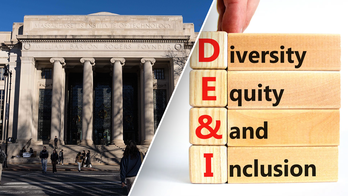Trump's infrastructure plan: What we know
President Trump is calling for Congress to pass a new infrastructure plan in 2018. Here is what we know so far about the Trump administration's potential plan to fix America's ailing infrastructure.
The White House will unveil a plan to increase infrastructure spending by $1.5 trillion that relies heavily on state and local governments, a senior administration official revealed Sunday.
The plan, which the administration is set to announce officially on Monday, also would cut the permitting process for new projects from ten years to two years and boost investment for projects in rural America -- including transportation, broadband, water, waste, power, flood management and ports -- by $50 billion in a bid to address criticism from some Republican senators that the Trump administration's initial emphasis on public-private partnerships would do little to help rural, traditionally GOP-leaning states.
Just $200 billion of the proposed spending would be in federal dollars, which the official said would come from "reductions in other areas of the budget." Half of that amount would go to grants for transportation, water, flood control, cleanup at some of the country's most polluted sites and other projects.
States, local governments and other project sponsors could use the grants -- which administration officials view as incentives -- for no more than 20 percent of the cost. Transit agencies generally count on the federal government for half the cost of major construction projects, and federal dollars can make up as much as 80 percent of some highway projects.
"Every federal dollar should be leveraged by partnering with state and local governments and -- where appropriate -- tapping into private sector investment to permanently fix the infrastructure deficit," President Trump said at last month's State of the Union address.
Trump has repeatedly blamed the "crumbling" state of the nation's roads and highways for preventing the American economy from reaching its full potential. Many in Washington believe that Trump should have begun his term a year ago with an infrastructure push, one that could have garnered bipartisan support or, at minimum, placed Democrats in a bind for opposing a popular political measure.
But the administration chose to begin with health care and relations with Democrats have only grown more strained during a turbulent, contentious year.
The president, in remarks last week to Republican lawmakers at a West Virginia retreat, emphasized efforts to "streamline the horrible approval process — roadways that take 12, 13, 14 years to get approved."
"We used to build them in three months, and now it takes years and years of approvals. We're going to bring that down, ideally, to one year. Two years is our goal, but one year is our real goal," Trump said.
Early reaction to the proposal was divided.
Jay Timmons, president of the National Association of Manufacturers, saluted Trump "for providing the leadership we have desperately needed to reclaim our rightful place as global leader on true 21st-century infrastructure."
"When ports are clogged, trucks are delayed, power is down, water is shut off, or the internet has a lapse, modern manufacturers' ability to compete is threatened and jobs are put at risk," said Timmons. "There is no excuse for inaction, and manufacturers are committed to ensuring that America seizes this opportunity."
But a number of Democrats and the U.S. Chamber of Commerce have pushed the administration to commit far more federal dollars, funded by tax increases, or by closing tax loopholes. And environmental groups expressed worry about its impact.
"President Trump's infrastructure proposal is a disaster," said Shelley Poticha, of the Natural Resources Defense Council. "It fails to offer the investment needed to bring our country into the 21st century. Even worse, his plan includes an unacceptable corporate giveaway by truncating environmental reviews."
Fox News' Jennifer Bowman and The Associated Press contributed to this report.






